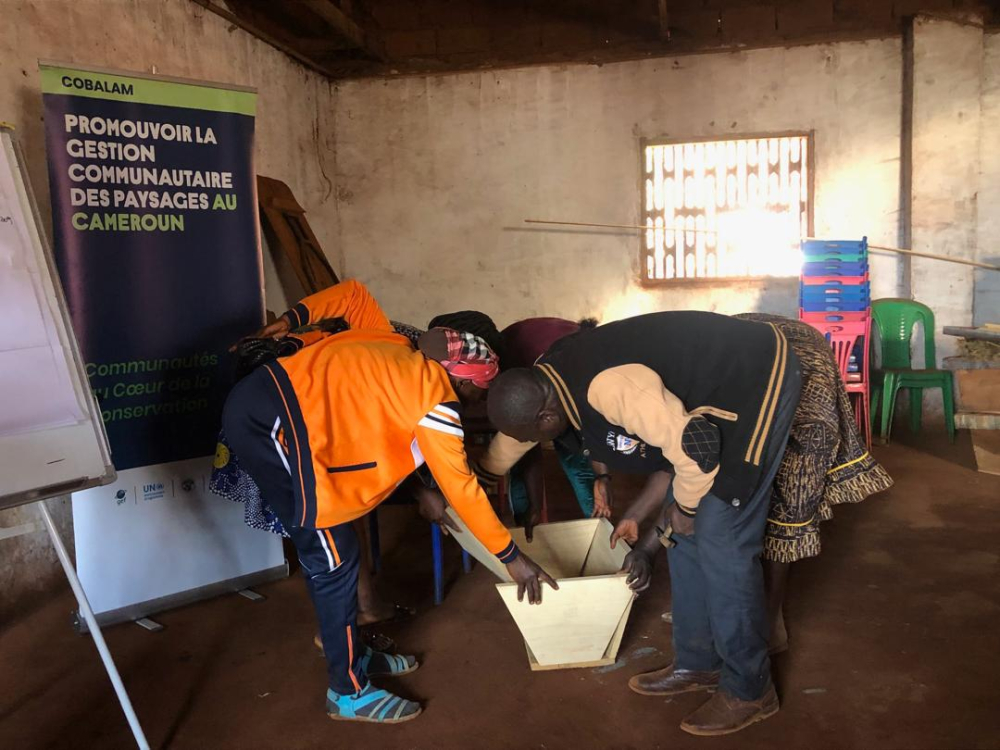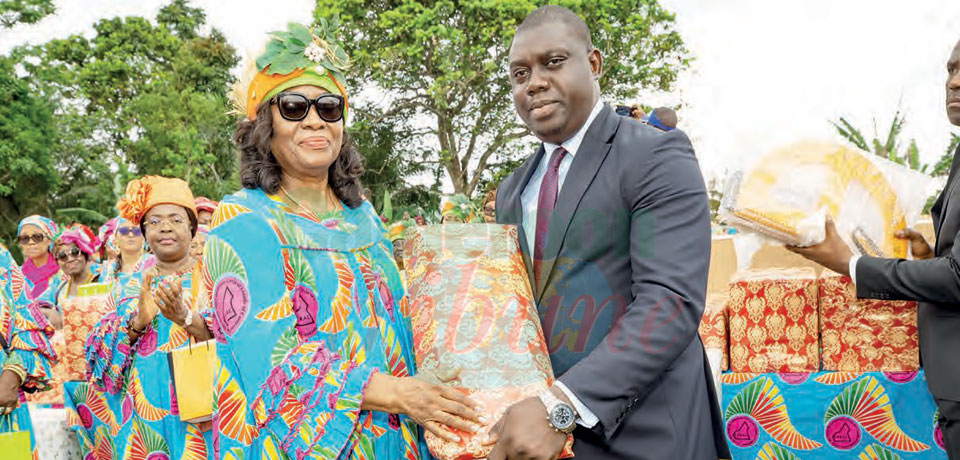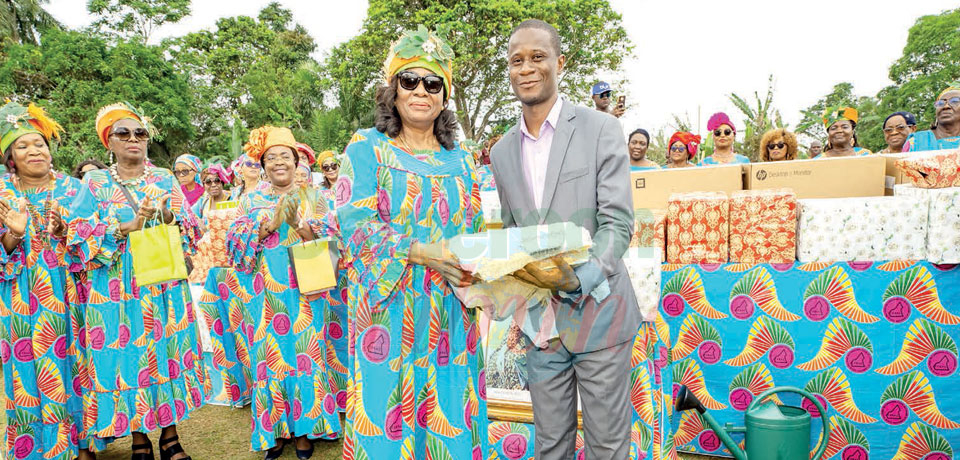Western Cameroon Highlands : Raising Bees, Assuring Biodiversity Conservation
- Par Kimeng Hilton
- 17 déc. 2024 18:33
- 0 Likes

Rainforest Alliance has in recent weeks trained over 100 farmers in modern bee farming practices as part of the Community-based Landscape Management, COBALAM project. Supported by UN Environment, with funding from the Global Environment Facility, GEF.
Buzzing around our fields and forests, they keep our planet thriving - pollinating the trees and flowers that provide habitat for wildlife. As well as the food we eat. More than three-quarters of the world’s food crops depend on them. Yet, bees are vanishing due to harmful agricultural practices, such as the overuse of toxic pesticides. Reason why the international charity, Rainforest Alliance, works with farmers around the world to advance more sustainable growing methods that support the bee-boosting biodiversity we all depend on.
Bee Farming Component
Rainforest Alliance has introduced a bee faming component to its “Removing Barriers to Biodiversity Conservation, Land Restoration and Sustainable Forest Management through Community-based Landscape Management,” COBALAM project. Which is implemented on the Western Highlands of Cameroon on the Bamboutos mountain range and the Bana-Bangangte-Bangou mountain range in the West Region of Cameroon. The project is implemented by Rainforest Alliance with the support of UN-Environment, UNEP and the Cameroonian Ministry of the Environment, Nature Protection and Sustainable Development, MINEPDED. It is funded by the Global Environment Facility, GEF.
Modern Beekeeping
Over 100 people were trained in beekeeping (bee farming) from December 4-12, 2024, to ensure good community management of the landscapes of the Bamboutos mountains and the Bana-Bangangte-Bangou mountains. The training took place in the localities of Batcham, Bangou, Batchingou, Fongo-Tongo, Bafou and Bangang. The objective being to contribute to improving the productivity of bee farming in the two target landscapes in order to satisfy the demand for quality products observed nationally. And sustainably protect biodiversity flora and fauna.
Biodiversity Conservation
“The objective was to demonstrate that bees are at the centre of biodiversity. Their pollination makes it possible to perpetuate several plant species and ensure the formation of good quality fruits and seeds,” explained Annie Florence Youbissi, an agro-zootechnical engineer, beekeeping expert and consultant with Rainforest Alliance. Concretely, the training focused on theoretical aspects including general information on beekeeping, techniques for setting up hives and using other equipment.
To Improve Livelihoods
“Bee farming is one of the options for the conservation and sustainable management of the two target landscapes of the COBALAM project. We started training in 2020, which generated a lot of interest and other communities also wanted to benefit from the training. This is why we organized training sessions which have been taking place for about two weeks,” said Jacques Waouo, the Coordinator of Rainforest Alliance in the Western Highlands of Cameroon. “We provide good practices to improve the livelihoods of beneficiaries. We don’t come to give fish, but we train them to fish,” Waouo insisted. Rainforest Alliance also encouraged beneficiaries to share the knowledge and skills with other community members.
Bee Farmers’ Cooperative
“The training aimed at creating income-generating activities so that apart from crop farming, beneficiaries will earn supplementary incomes for their families. This will enable them to join the Bamboutos Mountains Bee Farmers’ Cooperative to be set up as part of the COBALAM project,” Jacques Waouo noted. “It is about producing more and seeking a label for honey that is specific either to the Bamboutos mountains or the Bana-Bangangté-Bangou mountains. In this light, beekeeping products such as honey, honey wine, beeswax, pollen, propolis, royal jelly and bee venom are additional niche opportunities alongside agriculture,” Waouo noted.
Organic Honey
“We were taught to produce organic honey without cutting down trees. Before now, I practised beekeeping in the traditional way. Henceforth, I will improve my practices and become a professional bee farmer. I currently have over 100 traditional hives,” disclosed Jean-Bosco Tsona, 47, leader of GIC Sezon, based in Bazuintim village, Bangang, Bamboutos Division of West Region. “I also learnt to produce and clean modern bee hives. Rainforest Alliance will help us with honey processing equipment,” added Tsona, a father of seven who has been doing bee farming since the age of 17.
Can’t Do Without Them
“We learnt to raise bees. The training was very enriching. Before now, we didn't know what the bee represented. Without bees we cannot survive. We want to grow in bee farming. We will add beekeeping to our other farming activities to boost our family incomes,” said Phalone Tchinda.
Experts say bees are at the centre of biodiversity regeneration. Their pollination makes it possible to perpetuate several plant species and ensure the formation of good quality fruits and seeds. “To produce a kilogramme of honey, the bee must visit about 5.6 million flowers. You can evaluate the added value that the bee brings to food. If we put on a scale 5.6 million seeds or fruits produced in relation to the value of a kilogramme of honey, we realize that the bee does a marvelous job, but which is often neglected by the public,” explained Miss Florence Youbissi.
Different “Services”
“From the training, I now understand that the bee does a lot of good to man. Without bees, man cannot survive. Bees offer us fruits and honey, which is used for several purposes. Bees produce honey and royal jelly which is used for human health; and propolis which...
Cet article complet est réservé aux abonnés
Déjà abonné ? Identifiez-vous >
Accédez en illimité à Cameroon Tribune Digital à partir de 26250 FCFA
Je M'abonne1 minute suffit pour vous abonner à Cameroon Tribune Digital !
- Votre numéro spécial cameroon-tribune en version numérique
- Des encarts
- Des appels d'offres exclusives
- D'avant-première (accès 24h avant la publication)
- Des éditions consultables sur tous supports (smartphone, tablettes, PC)














Commentaires